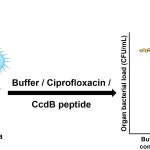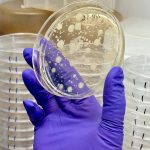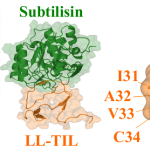
Untreated sewage water and animal-based manure are a common cause of contamination in agricultural fields. Through this route, food-borne pathogens like Salmonella bacteria may cause infections in humans.
To address this problem, researchers from IISc and the University of Agricultural Sciences, Bengaluru, have developed a strategy to use beetroot as a cultivation partner with other vegetables to arrest the growth of Salmonella in them.
The team, led by Dipshikha Chakravortty in the Department of Microbiology and Cell Biology, found that some compounds released by beetroot plants had antimicrobial properties that reduce the growth of pathogens in food crops.
The researchers tested this using different approaches: treating roots with Salmonella and testing the effects of beetroot extract on them, cultivating beetroot in Salmonella-treated soil, and growing tomatoes and beetroot together in Salmonella-treated soil.
The compound secreted by the beetroot plants is water soluble and can spread across the field through irrigation, without any extra effort. Co-cultivating beetroot is also cost-effective and therefore of immediate importance to small-scale farmers.






